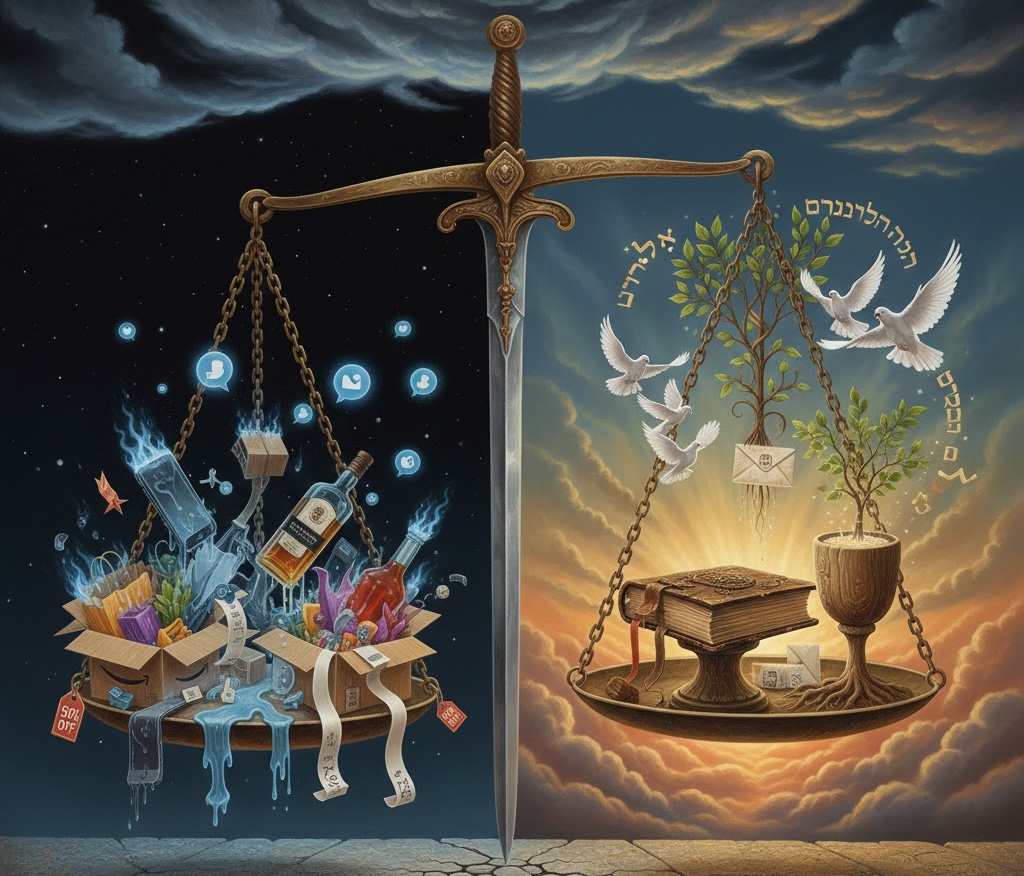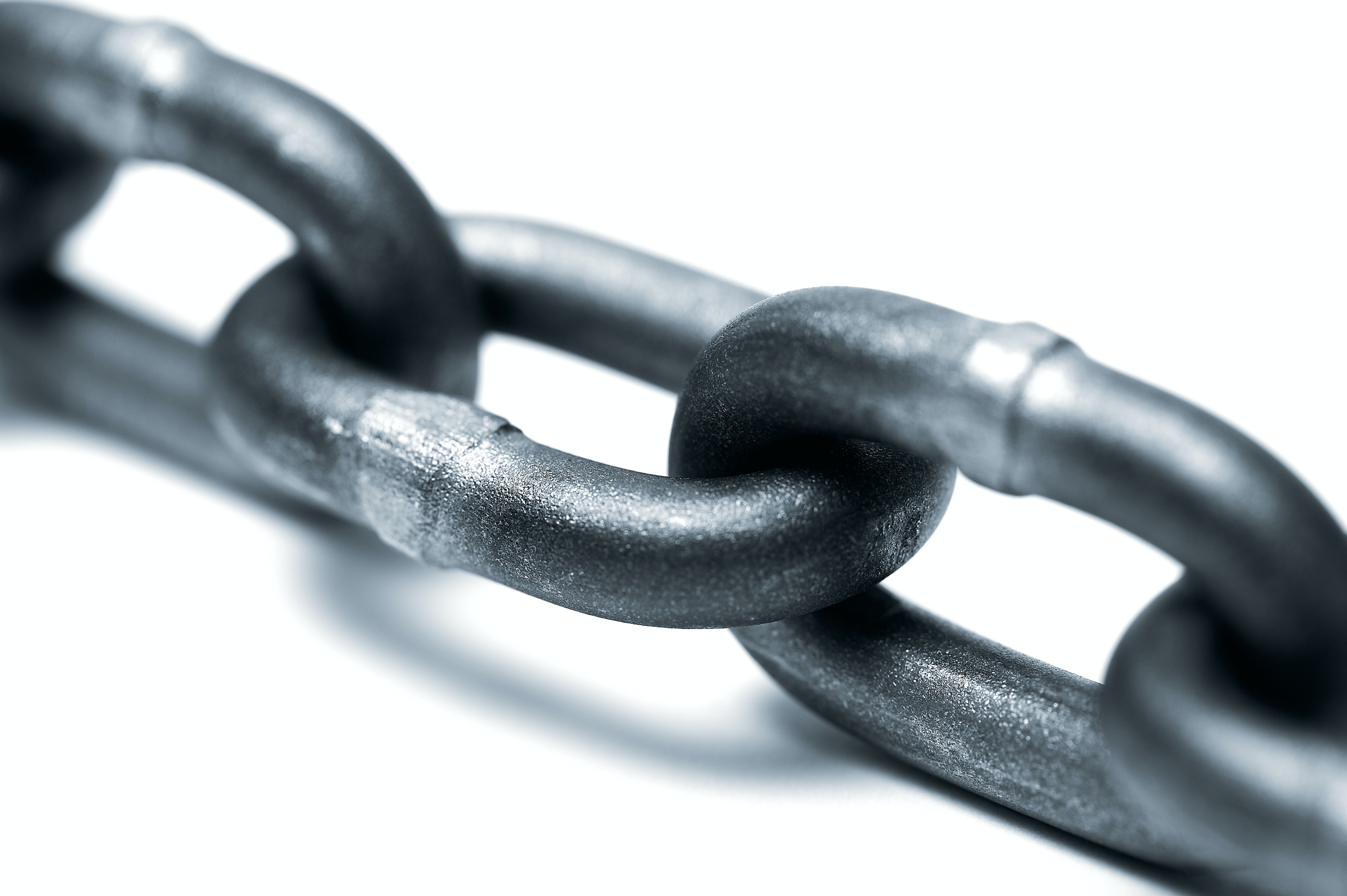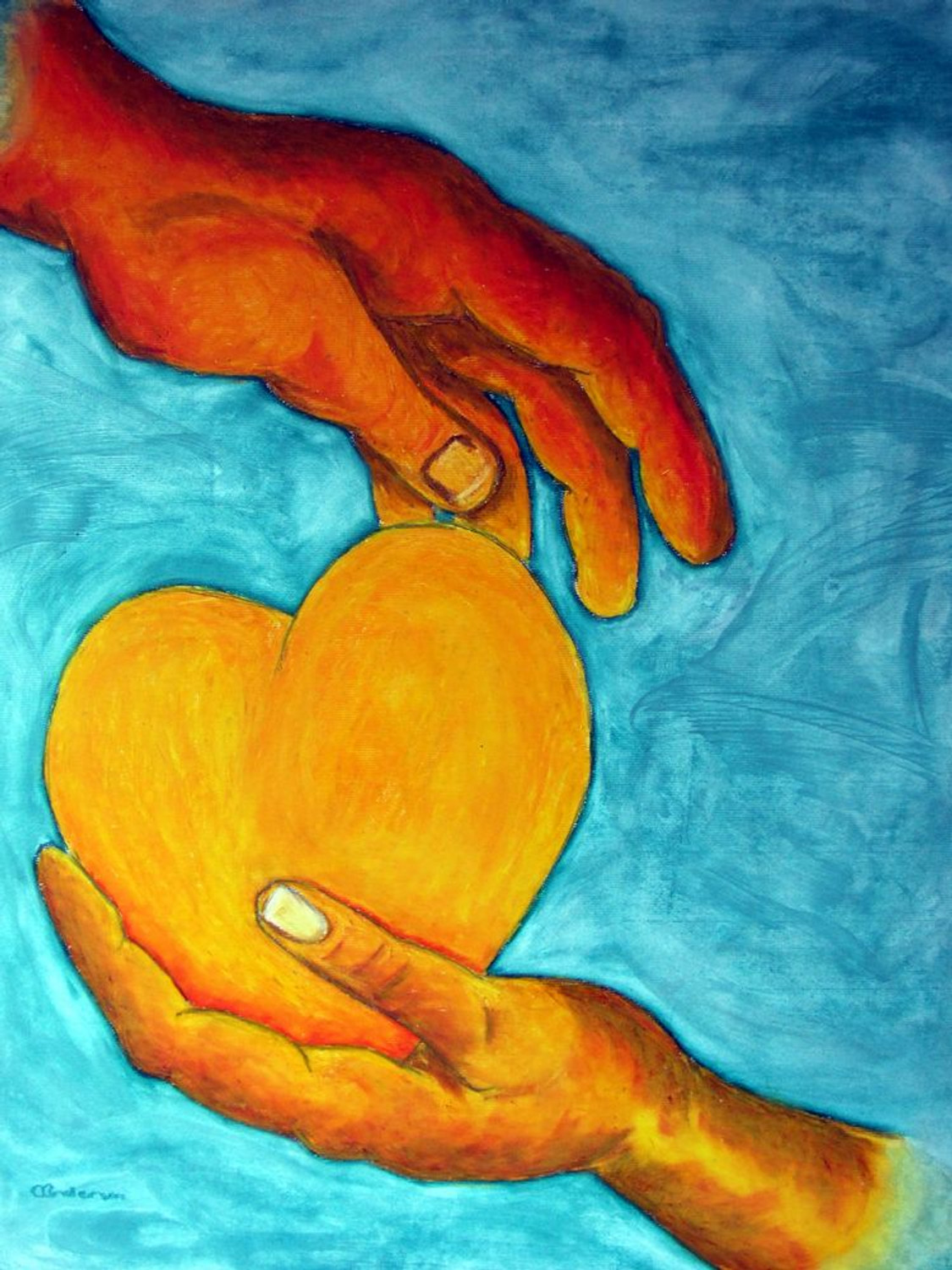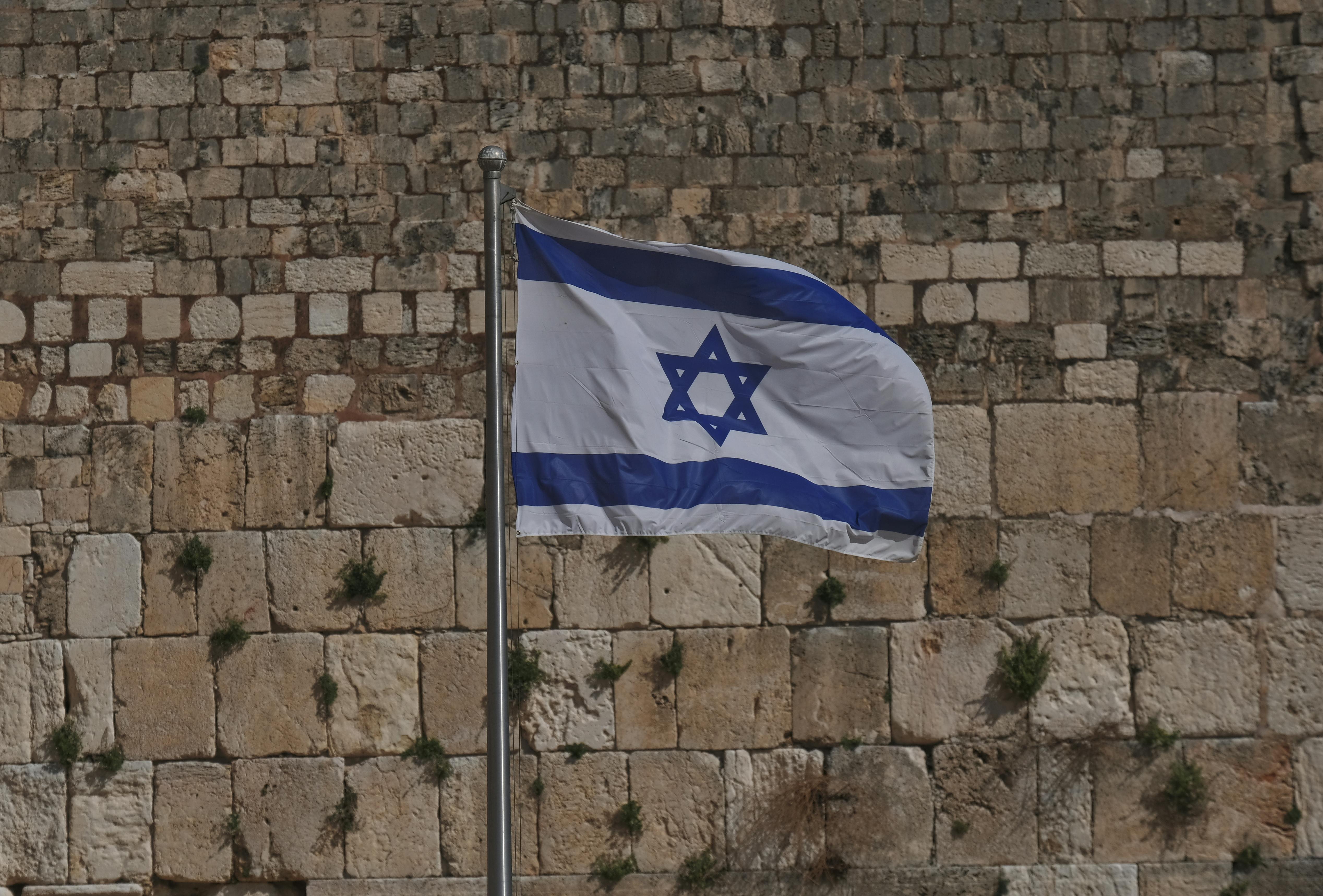June 8, 2023|י"ט סיון ה' אלפים תשפ"ג Naso 5783 - The Risk-Taker vs. The Risk-Averse
Print Article
The Torah is full of stories and halachos that follow one after the other. And oftentimes when that happens, Chazal find a way to connect them in some thematic way.
And one of the more well-known of these connections is found this week, when we are introduced to two halachos: The Sota and The Nazir.
The Sota, as we know, is a woman who is suspected of infidelity, warned by her husband not to seclude herself with another man, and when she violates that warning, she goes through the process of Sota.
The Nazir is an individual who decides to separate him or herself from certain parts of the physical world: The Nazir doesn’t get a haircut, become tamei to a dead body, or eat or drink any grape products.
And because the two are placed one after the other, it leads Chazal to question: What is the connection between these two halachos?
Rashi offers one perspective:
שכל הרואה סוטה בקלקולה יזיר עצמו מן היין
To teach me that any person who sees the Sota in her embarrassment, Yazir Atzmo Min HaYayin, will determine to become a Nazir.
But what are chazal getting at when they make this comparison between Nazir & Sota?
The mefarshim note that there are actually numerous – at least 5 - ways in which the Sota and Nazir are linked:
1. Both are presented in the same way in the Torah: Zos Toras HaNazir & Zos Toras HaKnaos/Jealousy.
2. HAIR: After allowing his hair to grow long for a given length of time, the nazir arrives in the BHMK and shaves every last hair off his head. The sotah arrives in the BHMK as well and has her hair uncovered for all to see.
3. TUMAH
a. Part of what nezirus requires is that a nazir may not defile himself – even for a close relative. He can never become טמא .
b. The woman suspected of adultery, conversely, undergoes the sotah process because we suspect she has defiled herself – she has become טמאה .
4. DRINKING
a. What defines the nazir is abstention from drinking – the decision not to drink wine or grape products.
b. The sotah is defined by precisely the opposite – her drinking the special waters prepared by the כהן
5. OIL
a. The Torah says specifically that the nazir brings an offering immersed in oil. חלות בלולות בשמן ורקיקי מצות משוחים בשמן .
b. When it comes to the sotah, the Torah goes out of its way to say: לא יצוק עליו שמן - It is FORBIDDEN for the sotah’s offering to contain oil.
V’Nasan:
a. What happens to the nazir’s newly-shorn hair? It’s cast onto the altar fire – V’Nasan Al Ha’Eish
b. In the case of the Sotah, the scroll containing God’s name is cast into water, V’Nasan Al HaMayim.
Clearly, the Torah is trying to define the Nazir and the Sota as POLAR OPPOSITES of each other. The Torah goes out of its way to create linguistic and thematic similarities between the two, but it does show to reflect just how DIFFERENT they really are.
What, though, is that difference?
I saw a thoughtful explanation from Rabbi Yossi Levine. Rabbi Levine wants to argue that the Torah is describing for us two approaches to life that can be equally perilous: The Risk-Taker and the Risk-Averse.
The Sota is a risk-taker. She likes to live life on the edge. She knows full well the consequences of ignoring her husband’s warnings. In the end of the day, she may not have actually cheated on her husband, but she walks along that thin line between guilt and innocence, and it sends her family into turmoil.
The Nazir, on the other hand, is risk averse. He prefers to live in a world with clearly defined boundaries. Just let me know what I need to do and I’ll do it. But the Nazir does not only follow the letter of the law, he creates more rules and laws, so that he should not come anywhere close to the boundary itself.
Sometimes we look at these two characters, the Sota and the Nazir, and we say, the Sota is out of control and the Nazir is the Tzadik. And the truth is, it doesn’t seem that Chazal feel that way. When we look a little closer at the comparison being made between these two, it seems that NEITHER path is the path the Torah wants for us.
And we find this message in one other place in our parsha as well:
As part of the process of ending his nezirus, the Torah tells us:
במדבר פרשת נשא פרק ו
](כ) וְהֵנִיף אוֹתָם הַכֹּהֵן תְּנוּפָה לִפְנֵי יְקֹוָק קֹדֶשׁ הוּא לַכֹּהֵן עַל חֲזֵה הַתְּנוּפָה וְעַל שׁוֹק הַתְּרוּמָה[ וְאַחַר יִשְׁתֶּה הַנָּזִיר יָיִן:
After all these things have been done, the Nazir can now drink wine.
But it’s a strange thing to say: He has just been through the process of ENDING his nezirus, so the pasuk should say “V’achar Yishte Yayin” now the person can drink wine. Why call him a nazir?! He’s NOT a nazir by this point!?
Rav Mordechai Gifter answers: This was the whole goal of the nezirus. NOT to live life with extra restrictions and boundaries, but to become a NAZIR who can drink wine. A person with the growth mindset of the Nazir, who has the ability to balance, and also drink wine in the right way.
Through the juxtaposition of the Sota and the Nazir, the Torah is not comparing the rasha and a Tzadik. It’s providing TWO EXAMPLES of an unhealthy lifestyle, NEITHER OF WHICH are promoted by the Torah.
A totally indulgent lifestyle, one that is OVERLY RISKY and doesn’t appreciate the need for boundaries, objective rules and regulations leads to a life, a community, and a society where anarchy rules and where my individuality trumps all.
At the same time, a RISK-AVERSE lifestyle, a life in which we close ourselves off entirely from the world can lead to an unhealthy retreat, robbing an individual of the ability to impact others and even to learn from them.
Don’t get me wrong, it’s a tightrope, and we can very easily fall deep into one side or the other if we’re not paying attention to the choices we make each and every day. But that’s our job. To walk the tightrope, and to continue to struggle to live a life of balance.
The Gemara in Eruvin (21b) reports that Shlomo HaMelech instituted two halachos:
1) Eruv, which, as we know, allows a person to carry objects from one domain to another – private and public – otherwise forbidden on Shabbath.
2) Netilas Yadayim (washing one’s hands) before eating bread.
Both takanos/decrees gained Divine favor, and a heavenly voice proclaimed:
(טו) בְּנִי אִם חָכַם לִבֶּךָ יִשְׂמַח לִבִּי גַם אָנִי:
“My son, if your heart is wise, Mine will be glad, even Mine…” (Mishleh 23:15).
Rav Menachem Mendel of Kotzk asked what is the great wisdom in these laws that HKBH approved of so joyfully?
Characteristically, the Kotzker Rebbe responded that it shows one ought to be involved and “mixing” (Eruv) with the world while simultaneously “washing one’s hands” of it.
But I also think the Sota & Nazir offer us a critically important lesson in personal growth because they remind us that while risk-taking to the extreme is unhealthy and destructive, some element of risk-taking can be critical for our growth.
Being willing to take risks in our Avodas Hashem is incredibly valuable. It is totally normal, and unfortunately all-too-common to fall into a certain rhythm and pattern when it comes to our lives as Jews. We fin ourselves either overtly or subconsciously noting that “these are the things that I do, and these are the things that just aren’t for me”.
Why aren’t they for me? There can be all kinds of reasons. Sometimes it’s because the mitzvah or halacha doesn’t speak to me or because it challenges me to change my way of life. Maybe I had a negative experience with it in my past.
But sometimes there are aspects of my religious life, in my Avodas Hashem that I am interested in changing, tinkering with, trying out, BUT IT’S RISKY:
- What will my friends say?
- What if I can’t keep it up?
- What if I’m successful? What will that mean for me going forward?
Of course, not all risks are worth it, and some are too extreme. But if we become too risk-averse we’re losing out on incredible opportunities for growth.
The gemara in brachos (27b-28a) tells the story about when Rabban Gamliel was removed from being the Nasi, the head of the yeshiva at that time. After going through a number of candidates, the elders decided to elect Rav Elazar ben Azarya.
When they asked him, he said, wisely, “let me ask my wife”. The gemara then records their conversation.
As part of the back and forth, she says to him:
דִּלְמָא מְעַבְּרִין לָךְ.
Maybe they’ll elect you and then remove you!
To which he responded:
לִשְׁתַּמַּשׁ אִינָשׁ יוֹמָא חֲדָא בְּכָסָא דְמוֹקְרָא, וְלִמְחַר לִיתְּבַר
It’s better to use an expensive goblet for one day and let it break tomorrow.
What he was telling her was that it’s worth it to take the risk today and do something meaningful, even if it might all be over the next day.
And, of course, Rav Elazar ben Azarya, who at the time was only 18 years old, eventually became one of the greatest tanayim of his time.
This is the lesson of the Sota & the Nazir. The lesson of moderation, of balance, even in the realm of risk-taking. Never to take too many risks but also not to be risk-averse. Because when we’re willing to take risks, you never know how far you might go.




